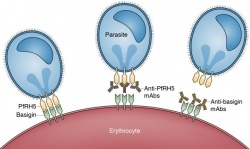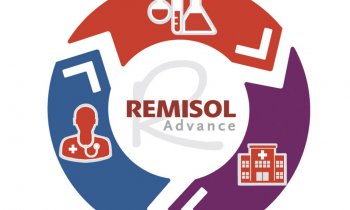Stopping malaria in its tracks
A new drug acts as a roadblock for malaria, curing mice of established infection, according to a study in The Journal of Experimental Medicine. Treatment was not associated with obvious side effects, suggesting that the drug may also be safe and effective in humans.

Nearly 200 million cases of malaria occur worldwide each year, and roughly 500,000 people (mostly African children) die of the disease. Malaria is caused by infection with the parasite Plasmodium falciparum (Pf), and although the disease can be treated with anti-malarial drugs, the drugs are harsh and resistance often develops.
In 2011, a group of scientists at the Wellcome Trust Sanger Institute in the UK discovered that a human protein called basigin was required for all strains of Pf to invade red blood cells, an essential stage of the parasite's life cycle. Antibodies that block the interaction between basigin and the parasite protein PfRH5 were known to block Pf infection in culture, and the Sanger Institute group has now developed a nontoxic anti-basigin drug (called Ab-1) that cured mice of established blood infection.
The transition of promising new drugs from mice to humans usually requires costly and time-consuming clinical trials, but the path for Ab-1 may be less arduous. Basigin has also been implicated in the progression of certain cancers and in graft-versus-host disease in transplant patients, and drugs that block the protein have already proven safe and effective in patients and are already in clinical use.
Source: Rockefeller University Press
21.07.2015











